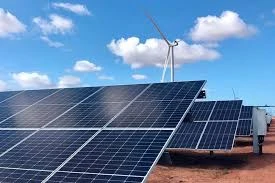Current Market Trends for Affordable 350 Watt Solar Panels and Their Cost Analysis
Understanding the Price of 350-Watt Solar Panels
In recent years, the push for renewable energy sources has gained momentum worldwide. Among the various renewable energy technologies, solar power stands out as one of the most popular choices for both homeowners and businesses alike. As the demand for solar energy grows, many people are interested in understanding the pricing associated with solar panels, specifically the 350-watt variety. This article will explore the factors that contribute to the price of 350-watt solar panels, their advantages, and how to choose the right solar panel system for your needs.
What are 350-Watt Solar Panels?
350-watt solar panels are photovoltaic (PV) panels designed to convert sunlight into electricity. They are a suitable option for various applications, including residential rooftops and commercial installations. The wattage rating of a solar panel indicates its power output under optimal conditions, meaning a 350-watt panel can generate 350 watts of electricity per hour when exposed to direct sunlight.
Price Factors
The price of 350-watt solar panels can fluctuate based on several factors
1. Material Quality The type of materials used in the manufacturing of solar panels greatly impacts their cost. Higher efficiency panels made from monocrystalline silicon tend to be more expensive than those made from polycrystalline silicon, which are generally more affordable.
2. Brand Reputation Well-established brands with a proven track record of reliability and performance typically command higher prices. While it may be tempting to go for cheaper alternatives, investing in a reputable brand can lead to better long-term performance and warranty support.
3. Market Demand Solar panel prices can be influenced by market demand and supply chain dynamics. For example, fluctuations in the availability of raw materials or changes in government incentives can affect pricing.
solar panel price 350 watt

4. Installation Costs The overall price of a solar panel system includes not just the panels themselves but also installation costs. Hiring professional installers and the complexity of the installation can increase the total cost of the system.
5. Incentives and Rebates Various local and federal programs provide incentives for solar panel installations, such as tax credits or rebates. These financial aids can significantly reduce the final cost of installing solar systems, making them more accessible for homeowners.
Advantages of 350-Watt Solar Panels
350-watt solar panels offer several advantages
- Efficiency These panels can produce a significant amount of energy, making them ideal for smaller rooftops where space is limited. - Versatility They can be employed in various applications, from residential to commercial settings, providing flexibility for users. - Long Lifespan High-quality solar panels typically come with warranties ranging from 25 years or more, ensuring a reliable power source for decades.
Choosing the Right System
When considering purchasing 350-watt solar panels, it is essential to evaluate your energy needs, roof space, and budget. Conducting a site assessment to determine how many panels you will need based on your energy consumption is crucial. Engaging with a reputable solar installer can also help you identify the best solar solutions tailored to your specific requirements.
Conclusion
350-watt solar panels present a practical and efficient option for individuals and businesses looking to harness solar energy. Understanding the costs associated with these panels, influenced by factors such as material quality, brand reputation, market conditions, and installation costs, can empower consumers to make informed decisions. As the renewable energy sector continues to evolve, investing in solar technology is not just a step towards energy independence but also a commitment to a sustainable future.
-
String Solar Inverter: The High-Efficiency Solution for Smart Solar EnergyNewsJul.14,2025
-
Revolutionizing Rooftop Energy with the Power of the Micro Solar InverterNewsJul.14,2025
-
Power Independence with Smart Off Grid Solar Inverter SolutionsNewsJul.14,2025
-
On Grid Solar Inverter: Powering the Future with Smart Grid IntegrationNewsJul.14,2025
-
Monocrystalline Solar Panels: High-Efficiency Power for the Future of Clean EnergyNewsJul.14,2025
-
Bifacial Solar Panel: A Smarter Investment for Next-Generation Energy SystemsNewsJul.14,2025







